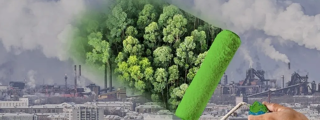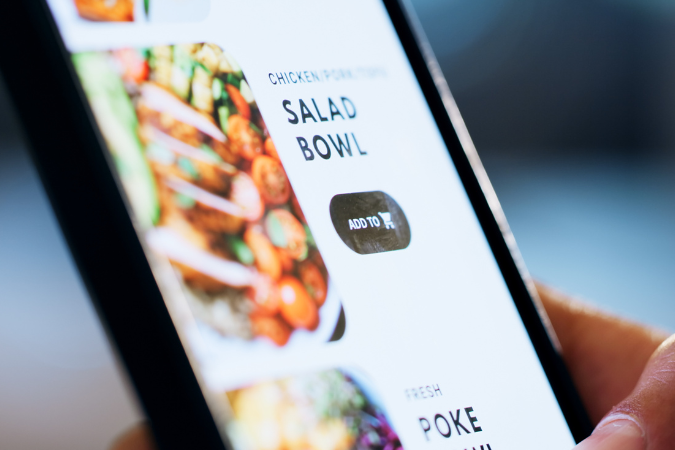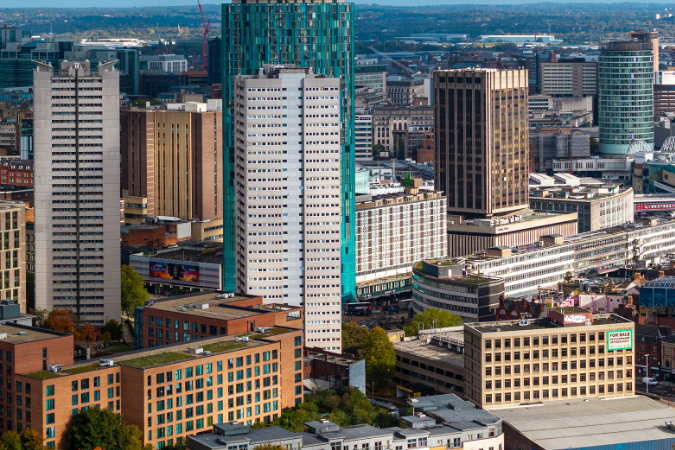As consumers become ever more environmentally aware, organisations of all sizes have taken it upon themselves to market their products and services with a 'green' emphasis. Unfortunately, in a number of cases, the eco-credentials outlined in their marketing copy doesn’t reflect real life. We look at some particularly toxic examples.
What is ‘Greenwashing’?
Put simply, ‘greenwashing’ is an unscrupulous practice adopted by certain businesses and organisations to make themselves appear more eco-aware and environmentally friendly than they actually are. Here are some classic examples from the last couple of years.
The Coca-Cola COP-Out
In 2022, the 27th UN Climate Change Conference (COP27) held in Sharm-el-Sheikh, Egypt proudly declared Coca-Cola as one of its lead sponsors.
Coca-Cola has repeatedly topped annual lists of the world’s biggest plastic polluters, and their decision to sponsor the conference – not to mention COP’s decision to accept the cash – was roundly criticised as a cynical attempt to make the company’s image more ‘eco-friendly’ and worse, one which was enabled by the UN. The fact that even COP isn’t immune to this practice shows just how widespread greenwashing has become.
Walmart’s Eco Panda-ing
In 2022, US retailers Walmart and Kohl’s agreed to pay a $5.5 million collective settlement over allegations that for 7 years, they’d used misleading claims when marketing products such as bath rugs and bedsheets as being manufactured from bamboo derivatives.
The retailers claimed that the items were manufactured in eco-friendly processes, using words like “sustainable” and “highly renewable” in their marketing, implying that the companies cared deeply about stewardship of planet through their products.
Unfortunately, all these ‘bamboo’ products were actually made from rayon, a semi-synthetic material with a well-known negative environmental impact.
Following imposition of the fine, a spokesperson for Walmart said: “We are committed to being the most trusted retailer and we hold ourselves accountable when issues like this are raised.”
Or, to put it another way, “OK, you’ve got us bang to rights. Sorry.”
Oatly’s Obfuscation
The Advertising Standards Authority (ASA) banned a high-profile advertising campaign by non-dairy milk brand Oatly for misleading green claims, forcing Oatly to remove the ads and acknowledge that they “could have been clearer”.
In 2022, Oatly stated that they were a “science-based company and take pride in being precise,” but their marketing didn’t provide remotely enough evidence to support their claims about food industry emissions.
The ads compared the carbon footprint of Oatly’s milk with dairy milk – not all Oatly products mind you, and not all milk. Just one variant of each.
Even better, the company implied scientific consensus by referencing “climate experts” to support its claim about a vegan dietary regime reducing environmental impact. The ASA found this to be the recorded opinion of (checks notes)……one researcher.
Not So Innocent
Brands should take great care not to overstate their environmental credentials or to create the impression of an environmental benefit where one doesn’t exist.
In 2022, Smoothie brand Innocent had an advertisement banned by the ASA after a ruling that Innocent had “misled” customers. Complaints from viewers claimed that an advertisement promoting Innocent drinks exaggerated the environmental benefit of the products.
Innocent’s response – in the manner of greenwashers everywhere – was monumentally specious, claiming that they’d simply intended to convey a “purpose-driven message” (eyeroll) and show that recycling was better than disposing of their packaging. (As though nobody knew that already.)
In response, the ASA issued a report concluding that the overall presentation of the advertisement, graphics and content gave a wholly false impression. It was clearly designed to lead consumers into believing that “purchasing Innocent products was a choice which would have a positive environmental impact, when that was not the case”.
Persil’s Dirty Laundry
This is an example that shows if you are going make environmental claims then you must at least provide a few scraps of evidence.
Unilever’s cleaning brand Persil is one of the UK’s best-selling. In 2022, the company decided to trumpet its perceived eco-contribution with a ‘Dirt is Good’ television ad campaign, in which it claimed the Persil brand to be ‘kinder on the planet’.
This so-vague-it-barely-exists statement was illustrated with some exemplary greenwashing visual cliches – children collecting waste plastic from the seashore, a woman adopting her ‘serious’ face while adding the hashtag #plantmoretrees to a social media post etc. None of which of course, explained why Persil cleaning products are ‘kinder on the planet’.
The Advertising Standards Authority promptly banned the ads, declaring itself unimpressed with the campaign’s lack of clarity and complete absence of facts.
This meant we never got to find out precisely what Persil detergents are ‘kinder on the planet’ than.
Nuclear missiles, maybe?
So Much For Greenwashing….
If you and your organisation wish to make a genuine and concerted effort to protect and improve the environment, why not sign up for the upcoming Climate Literacy for Sustainable Futures Skills Bootcamp?
This is the third run of this hugely popular course, and with places generously co-funded by the Department for Education, it doesn’t require major outlay either.






